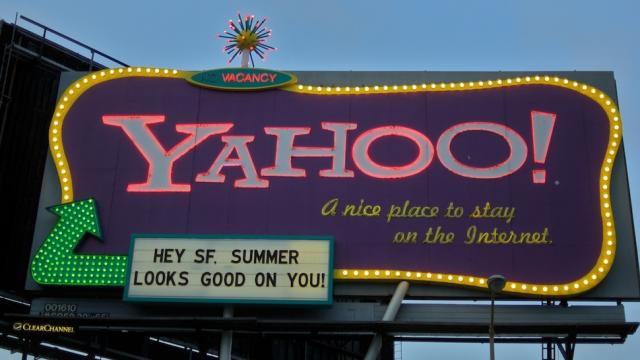On Monday, Yahoo won a court fight that will force the government to disclose secret information about a 2008 case that required Yahoo to hand over customer data. It’s icing on the cake for Marissa Mayer, who celebrates her one-year anniversary at Yahoo this week. But, more importantly, it could give us our clearest look at PRISM’s inner workings yet.
While it remains to be seen how much information the government will surrender, transparency advocates should be cheering Yahoo’s victory. This doesn’t happen that often.
The specifics of the case remain somewhat cloudy. Yahoo’s winning decision was handed down by the secret Foreign Intelligence Surveillance Act (FISA) court that handles all wiretapping requests for law enforcement and national security purposes. Yahoo’s victory is such a coup because groups like the American Civil Liberties Union (ACLU) and Electronic Frontier Foundation (EFF) have been trying for years to get the government to reveal more about what goes on in the FISA courtroom.
The US government’s been cagey though, hiding behind the court’s inherent secrecy. Apparently, however, nobody told the president. Last month on Charlie Rose, Obama defended the court’s track record of granting surveillance privileges for everyone that asks, while not disclosing a single detail about who’s making the requests or what they’re doing with the information. “It is transparent,” President Obama said. “That’s why we set up the FISA court.” Well, no it’s not transparent, Mr President. It’s a secret court. That’s the opposite of transparent!
Fortunately for freedom, the tables are starting to turn. And again this doesn’t happen that often. The last time that the FISA court ordered the government to give up information about a case was in 2002 for a Patriot Act case involving Donald Rumsfeld. While it’s tough to speculate why the FISA court’s opening the kimono after over a decade in the dark, it’s undeniable that it’s dealing with heavy criticism in the wake of the PRISM revelations. At the present, there are no less than five cases in US federal court that have been filed since Snowden’s big reveal.
Whether to diffuse the tension over PRISM or simply to review the specifics of Yahoo’s case, the government is starting to bend under the pressure. However, as any transparency advocate will tell you, it’s not time to celebrate until we see exactly how much the government reveals. It’d be a bummer to get all excited about the new age of transparency when the government hands over a box full of blacked out, redacted documents. It has a habit of doing that. [AP]
Picture: Fotopedia
